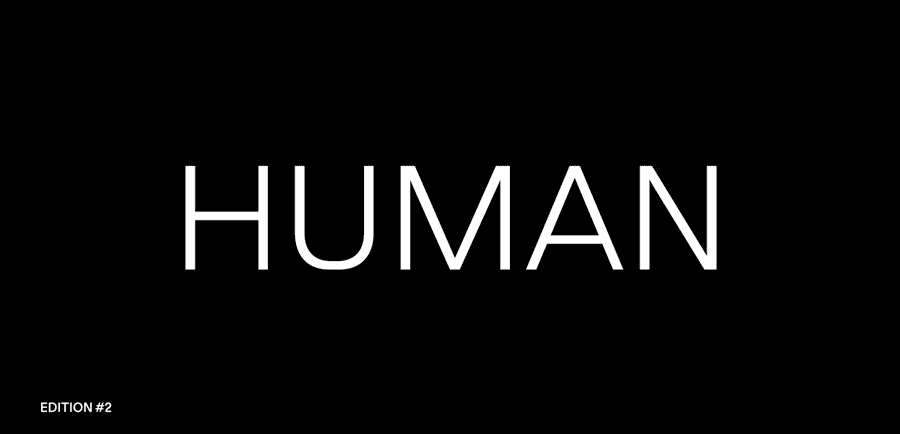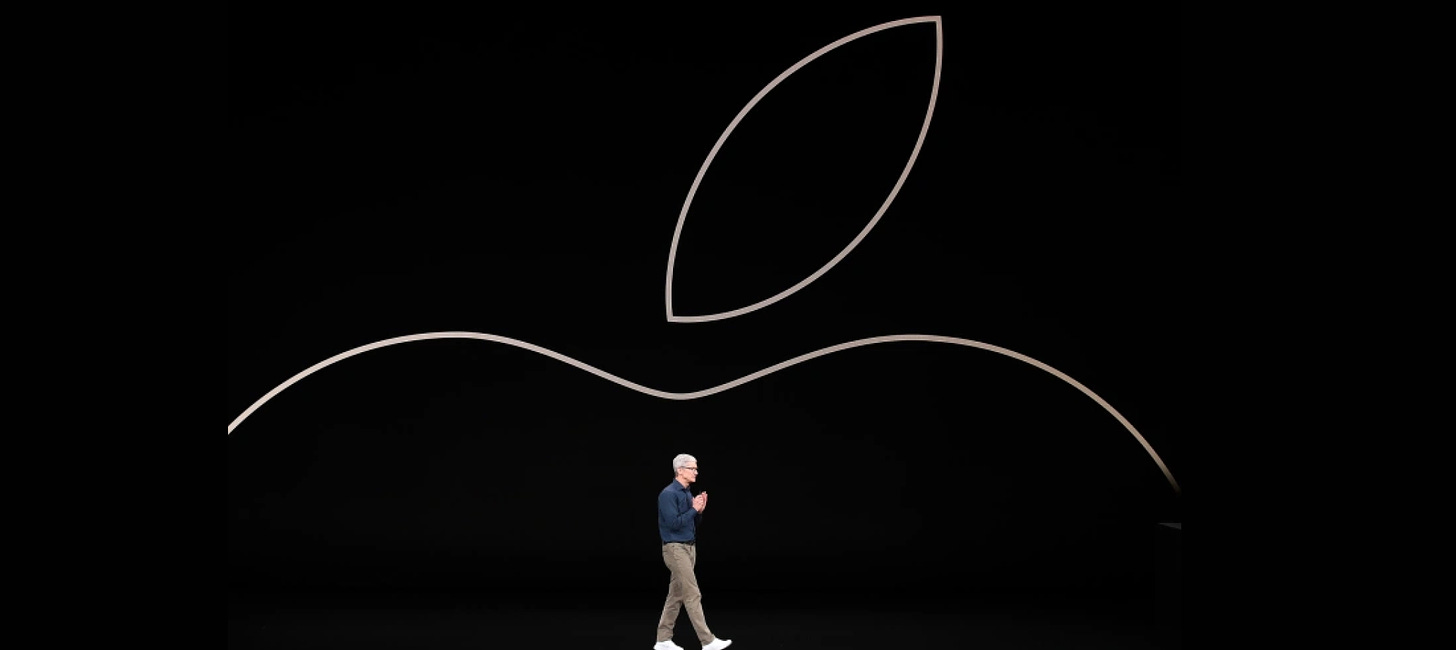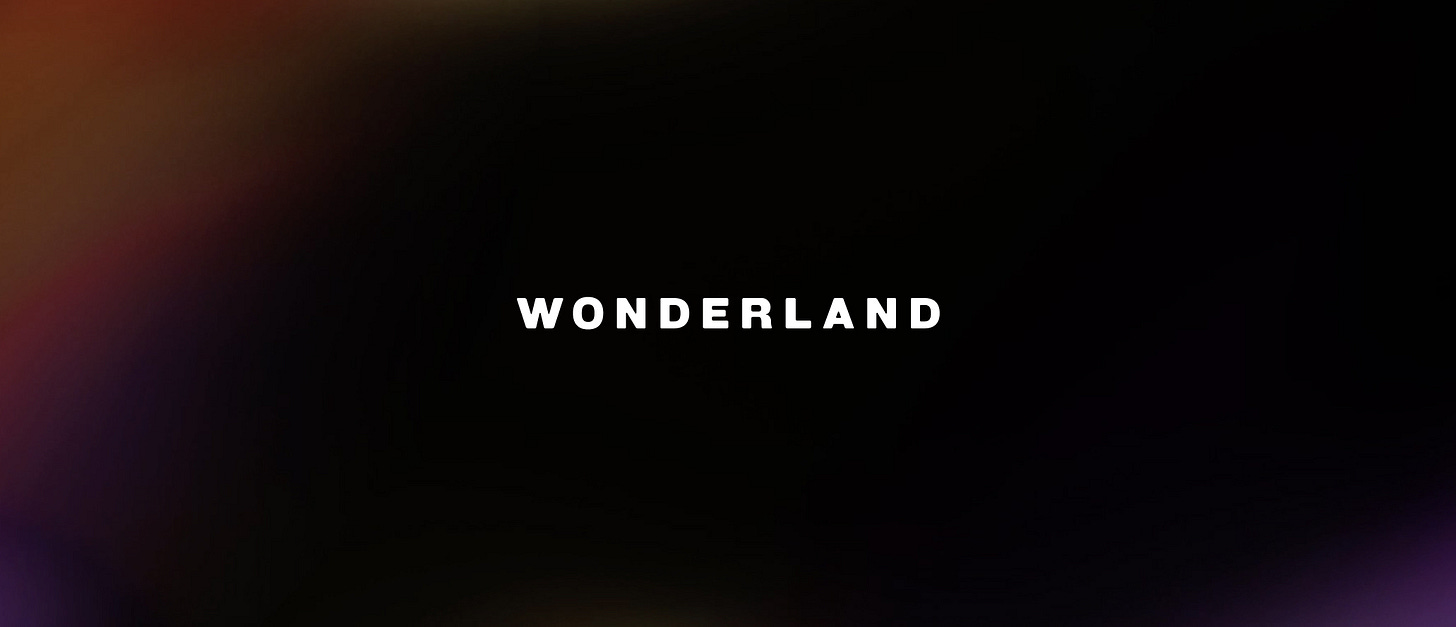HUMAN BY WONDERLAND #2
A newsletter about design and creativity, and how they contribute to a better world.
Hi, we’re WONDERLAND, an experience design agency based in Amsterdam, and LA. Welcome to the 2nd edition of HUMAN, a newsletter about how design & creativity can contribute to a better world. We’ll try to make this one of the best emails you get every few weeks or so. Enjoy!
Thought Leadership
Using digital as a platform for change: Part 1
We live in the age of hyper-consumerism, and while people are waking up to their environmental impact, making changes to our behaviour is still slow. As we said in Edition #1 of HUMAN, “There’s no point beating around the bush; our planet is in a terrible situation, and our collective optimism bias - where we assume the bad things will befall others rather than ourselves - is only making the situation worse.” This is why we need to embrace the power of digital, and its ability to impact change for good.
Increasingly, consumers are opting to vote with their wallets and choose brands and products that support a greener future as they switch to brands that connect with their personal beliefs. In Norway, for the first time in history, electric car purchases have outstripped traditional vehicles. We’ve seen brands like Veja and Allbirds dominate the fashion space, while remaining sustainable, and outspoken climate warriors like Patagonia grow from strength to strength. Around the world, people are starting to prioritise sustainability over exploitation, and working to leave the world better than how we found it. While we’re on the right track, the messages and ideas can go further with digital.
Back in 2016 REI took a stand against Black Friday, and the obscene need to consume that is so comically depicted in memes and GIFs just hours after the event. Some of you may or may not remember the #OPTOutside campaign that launched in advance of Black Friday 2016, where REI announced that they would be paying their full employee base of 12,000+ staff to take the day off and spend the day in nature. Every single REI location closed across America - including their online store - as they urged people to get outside and enjoy the natural world, rather than spending time in the push and shove of store aisles.
While REI led the charge, they were soon followed by retailers across America - over 150 to be exact - as they too closed their stores, and encouraged people to #OptOutside. The call was even taken up by state parks across the country as they opened their gates for free and welcomed people in to enjoy America’s natural places.
The success of the Opt Outside campaign cannot be ignored, with social media mentions increasing by over 7,000% and 2.7 Billion PR impressions earned in just 24 hours. At the same time, REI created a digital platform which they have used to grow and develop the messaging that encourages people to spend time in and appreciate nature, and more recently to do good for the planet.
Last year the ‘OPT’ platform transformed into the #OPTToAct campaign, a call for REI’s customers and followers to join them on Black Friday 2020 for a “Nationwide day of action” that would kick off a year of change. The campaign is both empathetic and guilt-inducing in its messaging, recognising how easy it has been for to create the waste while acknowledging that behaviour change is hard. But neither is it impossible, and it’s never too late to begin making a change.
For the Leave No Trace Center for Outdoor Ethics, the campaign has became part of their own toolkit and ethos as they joined community cleanups across the country and did their bit to leave the world better than when they found it.
While the impact is physical, the Call to Action is digital, and it is through this digital platform that REI has been able to reach millions of people across America - and billions around the world - encouraging them to #OPTToAct, and be part of a change for good, rather than staying put in the status quo.
Theo de Monchy | Strategist
This part one of a larger piece we have planned for our Ideas page, exploring how digital platforms can be used for good.
From the teams
Things that made us double take:
Just because the world is closed, that hasn’t stopped artists from creating. Founded by three creatives from Barcelona, the Covid Art Museum is the world’s first museum for art born during the COVID-19 pandemic.
Conceived by Onmateria, Sweden, the beautifully designed Green Box imagines a future for toiletries within the hotel industry that are lighter on the planet and educational in their use.
Ever the comic, Burger King - via DAVID Madrid - have perfectly summed up our New Normal with their latest spot for the Impossible Whopper, where they highlight our confusing reality of working from home, and living at work.
There are No More Halfsies on Climate change argues Bill McKibben in a recent article in The New Yorker. “We’re reaching the endgame”, and the decisions we make in the coming years will be the make-or-break point for humanity.
Created by the Human Rights Commission of New Zealand (Te Káhui Tika Tangata) as part of their wider Give Nothing to Racism campaign, the Voice of Racism is “based on real-life experiences of racism in [New Zealand]. The campaign aims to further raise awareness of racist behaviour and the harm caused to those on the receiving end of it”.
Caught our attention: The Social Dilemma
As we’ve seen in the past, Dove takes its role as a beauty and hygiene brand seriously, especially when it comes to empowering girls and women, and educating the world about realistic beauty standards. We saw it with the Dove beauty sketches eight years ago, and in Beauty on your own terms #MyBeautyMySay in 2016. Now they’ve done it again with the Reverse Selfie, addressing one of the more challenging aspects of growing up, and of parenting, in the 21st century: social media and digital tools.
Simple and easy to follow, the Reverse Selfie depicts what we see as a young woman in her mid-to-late teens with a full face of make up and an appearance that conforms to traditional beauty standards. However, the 1:30 spot is spent reversing this, taking her from the airbrushed and edited image we first see to an innocent young girl who has doctored and altered her image with digital tools for the sake of social media.
The message is clear: “the pressure of social media is harming our girls’ self-esteem”, and it’s our job as parents, and adults to protect them from the ‘instagram lifestyle’ that they’re so over-exposed to. The campaign has been further developed with the addition of Social Media Confidence Kits - one for parents and one for teachers - that offer expert advice about how best to approach the topic, and protect our children.
While we’re on the topic of social media, Facebook and Instagram have recently begun a campaign what one twitter user has dubbed ‘scare tactics’ to retain access to our data. With the launch of Apple’s iOS 14.5, apps must now ask for permission to track you as you move from app to app. In response, both Facebook and Instagram are now greeting users with colourful and simply worded explanations that outline just how they use our data, and why it’s important they retain access. One of the key reasons is the ability to “keep them free” for use, suggesting that the removal of access to our data may lead to a paywall blocking access to the social media tools.
This is just the latest argument in a long running debate about digital privacy and protecting ourselves and our data online. We all know that companies track us through the internet, leading to personally tailored and heavily targeted advertisements that more often than not have us asking ‘are they listening to me’. It was in part due to these issues that the GDPR was even implemented.
However, big companies rarely speak out about how they monetise our data, or how it has grown to become a $227Bn/year business, according to Pretty Fluid Technologies. Now, Apple has taken a stand. Earlier this year in February, CEO Tim Cook argued that these practices “degrade our fundamental right to privacy first, and our social fabric by consequence,” and contributes to a world full of “rampant disinformation and conspiracy theories juiced by algorithms”. iOS 14.5 is just the next step in Cook’s stand for greater data control.
What do you think? Are Apple on the right track when it comes to protecting our data and restricting tracking? And would you pay for access to Facebook and Instagram?
If you've enjoyed HUMAN so far, feel free to share it along with a friend or colleague! We’re always happy to welcome new readers, and they can sign up for themselves here. If we’ve left you wanting more WONDERLAND, you can check out our latest work here. We do our best to update it regularly!
Thanks for reading,
Team WONDERLAND







